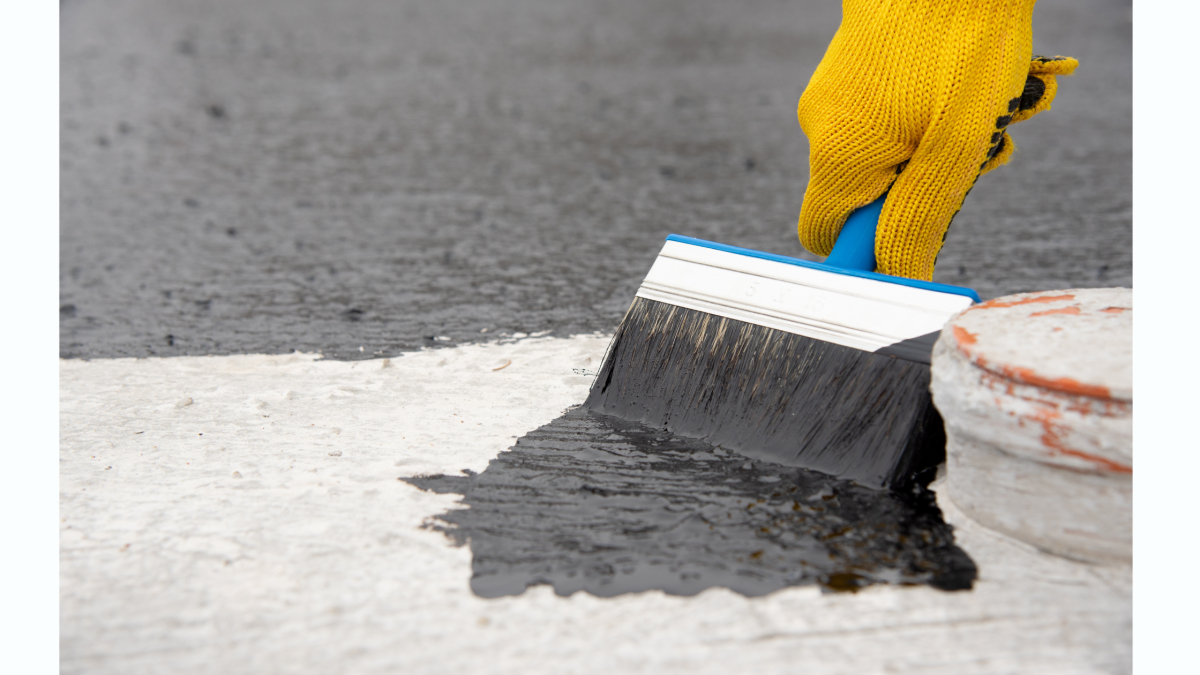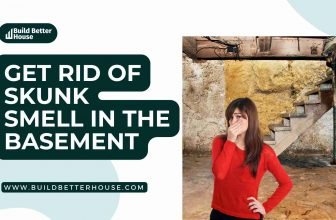Waterproof Basement Flooring: A Comprehensive Guide for Optimal Results

Basement flooring can be a challenge due to the potential for moisture and water damage. Waterproof flooring options are essential for any homeowner looking to create a functional and stylish basement living space. It’s important to choose flooring that is not only visually appealing but also capable of withstanding the unique environment of a basement.
There are several factors to consider when selecting the ideal waterproof basement flooring, such as the purpose of the space, the level of moisture, and your budget. Various flooring materials and options are available, each with their own advantages and limitations. It’s essential to thoroughly research your choices and prepare the surface properly to ensure a long-lasting, resilient basement floor.

Key Takeaways
- Waterproof basement flooring is crucial for protecting against moisture and water damage
- Consider the purpose of the space, moisture level, and budget when selecting flooring
- Explore various flooring materials and options, and prepare the surface properly for optimal results
Importance of Waterproof Basement Flooring
As a homeowner, it’s crucial for you to invest in waterproof basement flooring. Basements are prone to moisture issues, and failing to use waterproof flooring can lead to significant water damage, mold growth, and costly repairs. A waterproof floor provides a strong defense against basement-specific challenges like fluctuating moisture levels and potential flooding.
Waterproof basement flooring is essential in maintaining the integrity of your home’s structure. Moisture in your basement can seep into the walls and foundation, weakening the structure and leading to costly repairs down the line. By investing in durable, moisture-resistant flooring, you can protect the structural integrity of your home.
Moreover, choosing the right waterproof basement flooring can significantly enhance the functionality and comfort of your basement. It allows you to use the space for various purposes, like a home office, gym, or entertainment area, without worrying about potential water damage. Waterproof flooring also helps in creating a healthier and more comfortable environment for you and your family by preventing mold and mildew buildup.
Some popular waterproof flooring options for basements include:
- Epoxy: A liquid coating that serves as a sealer and flooring design, ideal for workspaces and play areas.
- Vinyl planks or tiles: Economical and easy to install, providing great value for the money.
- Rubber flooring: Offers durability and comfort while also being resistant to moisture.
In conclusion, investing in waterproof flooring for your basement is a smart decision that ensures the longevity and value of your home. It protects against moisture issues, enhances the functionality of your living space, and helps maintain a healthy environment for you and your family.
Factors to Consider When Choosing Basement Flooring
When selecting the right waterproof flooring for your basement, it’s essential to consider a variety of factors. By taking these into account, you can make an informed decision that meets your needs and preferences.
Durability should be a primary factor in your decision making, as basement flooring needs to withstand potential moisture and humidity changes. Epoxy paint and sealed concrete are both durable and affordable options that offer adequate waterproofing.
Comfort may be another important aspect, particularly if your basement serves as a living space or play area. Options such as engineered hardwood or vinyl tiles can provide warmth and cushion underfoot, making your basement a more inviting environment.
Cost is always a crucial consideration, and it’s important to find a flooring option that fits within your budget. Affordable options like peel-and-stick vinyl tiles or epoxy paint can provide a balance between performance and price.
Maintenance requirements should also play a role in your selection, as some basement flooring options may require greater care and upkeep. For example, vinyl and epoxy floors are easy to clean and maintain, making them ideal choices for busy households.
Take into consideration the style and aesthetic preferences in your home when choosing basement flooring. There are plenty of options available, from the contemporary look of epoxy to the classic warmth of engineered hardwood.
The purpose of your basement will greatly impact the flooring choice. Basements used as workspaces, like garages or woodworking shops, would benefit from a durable and moisture-resistant epoxy floor, whereas a family room or entertainment space might require a more comfortable and visually appealing option, such as engineered hardwood or vinyl tiles.
Lastly, evaluate your basement conditions and ensure that the flooring you choose is appropriate for the space. For example, solid wood is not recommended for basements due to fluctuating moisture levels that can cause buckling or splitting. Always select a flooring option that is designed for basement use and can handle the unique challenges of this space.
By considering these factors, you’ll be well-equipped to choose the right waterproof basement flooring for your needs.
Materials and Options for Waterproof Basement Flooring
When considering materials and options for waterproof basement flooring, you have a variety of choices that cater to different needs and preferences. The key is to select a flooring type that suits your specific situation and ensures long-term protection from moisture and dampness.
Concrete is a durable and cost-effective option for basement flooring. You may choose to have sealed concrete, which increases its resistance to moisture. Additionally, applying epoxy paint on the concrete floor enhances its durability and waterproofing capabilities.
Tiles are another popular choice for basement flooring. Opting for ceramic tiles provides a waterproof, easy-to-clean surface that is highly resistant to moisture. Furthermore, you may choose non-slip tiles to increase safety in potentially wet areas.
Vinyl flooring is a versatile and waterproof option that comes in various forms such as luxury vinyl plank, peel & stick vinyl plank, and glue-down vinyl sheets. Luxury vinyl plank (LVP) imitates the appearance of real hardwood but has the added advantage of being waterproof and floating above the floor, removing the need for a wood subfloor.
Laminate is an affordable alternative to hardwood flooring. Engineered with a high-density fiberboard core and a melamine wear layer, it can provide reliable resistance to moisture when properly installed.
Rubber flooring is a durable, comfortable, and water-resistant option, particularly suitable for workout rooms or play areas in the basement. Available in tiles or rolls, rubber flooring can also dampen sound and absorb impact.
Engineered hardwood flooring combines the beauty of real wood with improved moisture resistance. This type of flooring uses layers of plywood or high-density fiberboard as a core, topped with a real hardwood veneer. While not entirely waterproof, it performs better in basements compared to solid hardwood.
PVC plastic flooring is another option for waterproof basement flooring. Made from durable, waterproof material, it’s easy to clean and maintain, which makes it an excellent choice for high-traffic or shared spaces.
By considering the specific needs of your basement and the moisture-resistant properties of each flooring type, you can confidently choose a material that will provide both aesthetic appeal and long-lasting protection for your basement floor.
Installation and Preparation
Before installing waterproof basement flooring, it’s crucial to properly prepare the space. Start by evaluating your existing concrete floor to determine if any repairs or leveling is needed. If you notice any cracks or signs of moisture, consider applying a waterproofing agent like Siloxa-Tek 8510 along with a densifier to help improve the floor’s condition.
Next, think about whether your basement requires additional insulation or drainage systems. Insulation can help prevent cold floors and reduce energy costs, while proper drainage can keep water away from your flooring, ensuring a dry and comfortable environment. Remember that the location of your basement may also play a role in determining the best insulation and drainage options.
Once you’ve addressed any concrete floor issues and insulation needs, it’s time to decide the type of subfloor and underlayment suitable for your waterproof basement flooring. A subfloor creates a level surface for the flooring, while the underlayment adds an extra layer of protection against moisture infiltration. The thickness of the subfloor and underlayment can affect the comfort and longevity of the flooring, so choose materials that meet your specific requirements and preferences.
As for installation costs, carefully weigh the benefits of hiring a professional against attempting a DIY installation. Keep in mind that for some flooring materials, like waterproof vinyl plank flooring, installing it yourself may be more manageable. However, if you’re inexperienced or lack the necessary tools, hiring a professional may ultimately save you time and money.
In summary, to achieve a successful waterproof basement flooring installation, focus on properly preparing the concrete floor, addressing insulation and drainage needs, selecting the right subfloor and underlayment, and deciding between DIY or professional installation. By taking the time to plan and execute each step, you’ll create a durable, comfortable, and moisture-resistant basement floor that meets your needs.
Surface Treatment and Maintenance
When it comes to choosing waterproof basement flooring, it’s essential to consider the surface treatment and maintenance that will be required. Not only will this help your flooring last longer, but it will also ensure that it remains attractive and functional for years to come.
In general, waterproof basement flooring requires very minimal maintenance, making your life easier. Regardless of the material you choose, always start by ensuring your basement floor is properly prepared, meaning it is clean, crack-free, and leveled before the installation.
Stain-resistant flooring materials are highly recommended for basements. They help avoid unsightly marks on your floors, especially in high-traffic areas or workshops where spills may be common.
Easy-to-clean surfaces also make basement flooring highly desirable. Materials like vinyl or epoxy tend to be low maintenance since they can be easily wiped or mopped clean with minimal effort, keeping your basement looking fresh and hygienic.
Address any cracks in your flooring as they arise. Properly sealing these can prevent water intrusion and damage to your basement’s structure over time. Some flooring materials may be more resistant to cracking than others, so choose a durable option if this is a concern.
When it comes to textures and colors, waterproof basement flooring options come in a wide variety. Choose a design that complements your overall basement remodel and matches your style preferences.
For a basement that doubles as a workshop, consider epoxy flooring, as it’s highly durable and can withstand the wear and tear of a working environment. Additionally, it offers customizable color and texture options, making it easy to tailor your floor to your specific needs.
If you’re conscious about the environment, opt for eco-friendly flooring options. Materials like cork or bamboo can be sustainable choices, offering durability and resistance to moisture without negatively impacting the environment.
Finally, don’t forget about sealing your flooring. Properly sealing your basement floor will help protect it from moisture and prolong its lifespan, ensuring you get the most out of your investment.
By addressing these aspects of surface treatment and maintenance, you can confidently install waterproof basement flooring that remains visually appealing and performs its function well, ensuring your basement stays protected and enjoyable for years to come.
Comparing Waterproof Basement Flooring Options
When choosing the perfect waterproof basement flooring, you have various options to consider. Each type has its advantages and drawbacks concerning durability, affordability, and style. In this section, we will discuss some popular waterproof flooring choices and what sets them apart.
Epoxy Paint is an affordable and durable option, especially if you plan to use your basement as a workshop or workout room. Epoxy dries thick and hard, providing ample protection against water damage. However, it might be less suitable for living spaces or bedrooms as it lacks the comfort and style of other options.
Vinyl Flooring (specifically, Luxury Vinyl Plank or LVP) is an excellent choice for a waterproof basement flooring that can resemble real hardwood or other materials. Luxury vinyl planks are water-resistant, durable, and available in various styles. Interlocking systems make installation relatively easy, so you can even install them without the help of a professional.
Laminate Flooring is another option that requires a moisture-resistant underlayment. Laminate is generally water-resistant but not fully waterproof like vinyl planks. Today’s laminate floors come with realistic wood-like designs and offer a range of styles to suit your taste. They can be more affordable than luxury vinyl, but it’s essential to choose a laminate specifically designed for basements.
Carpeting, though not inherently water-resistant, can be used in basements with the proper preparation. A waterproof pad installed beneath the carpet can provide a barrier against moisture. This option adds a level of comfort, warmth, and style to your space. However, it’s crucial to remember that carpet is less durable than other options and may not be the best choice in areas prone to flooding or excessive moisture.
Before making your decision, consult customer service professionals and use this guide to make an informed choice. Remember, the key to an ideal waterproof basement flooring is selecting materials that will offer durability, moisture resistance, and style while fitting within your budget. By doing so, you can transform your basement into a functional and visually appealing space that meets your needs and promotes health.
Frequently Asked Questions
What is the most effective material for waterproofing a basement floor?
When it comes to waterproofing a basement floor, epoxy coatings are considered one of the most effective solutions. Epoxy is a liquid coating that seals the surface and provides a durable, water-resistant layer. It is ideal for spaces such as garages, workshops, or basements where moisture is a concern.
Which flooring options are most suitable for damp basements?
There are several flooring options suitable for damp basements, including epoxy coatings, vinyl planks, and interlocking tiles. Epoxy is a durable and water-resistant option that forms a seamless surface. Vinyl planks are waterproof and scratch-resistant, making them an excellent choice as well. Interlocking tiles are a flexible option and can be easily removed or replaced if damaged.
What should I consider when choosing a waterproof basement flooring?
When selecting waterproof basement flooring, consider factors like water-resistance, durability, comfort, appearance, and ease of installation. Keep in mind the existing floor type and the intended use of the basement. Ideally, choose a material that provides a balance between functionality and aesthetics.
What is the average cost of installing waterproof basement flooring?
The cost of installing waterproof basement flooring varies greatly depending on the material, labor, and size of the space. Epoxy coatings tend to be more affordable, costing between $3-$12 per square foot, including labor. Luxury vinyl planks can cost between $5-$15 per square foot, while interlocking tiles can range from $5-$20 per square foot. These costs are approximate and may vary depending on factors such as location and specific product choices.
Are interlocking basement floor tiles a good option for wet basements?
Interlocking basement floor tiles are a suitable option for wet basements as they offer water resistance, durability, and ease of installation. These tiles often have a raised design, allowing water to flow underneath and helping to prevent mold growth. In addition, they can be easily removed or replaced if damaged, making them a convenient option for basements prone to water issues.
Is vinyl flooring a suitable choice for waterproofing a basement?
Yes, vinyl flooring is an excellent choice for waterproofing a basement. Luxury vinyl planks, in particular, offer a high level of water resistance, making them suitable for damp environments. They are also scratch-resistant and can be installed over various floor types, including concrete, tile, and wood.






